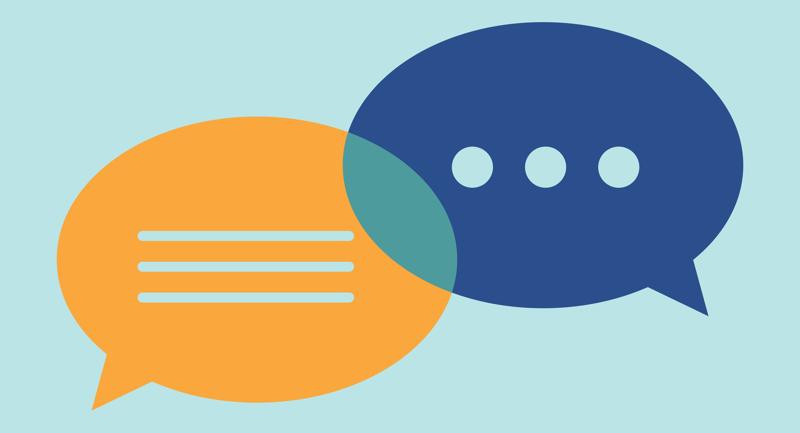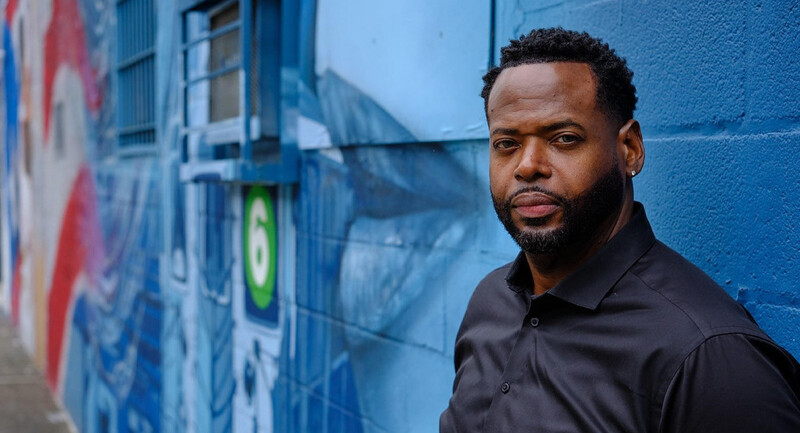Jefferson County Public Schools in Louisville, Kentucky, serves close to 100,000 students in 167 schools. In 2017, the district was under threat of state takeover. The board had just named an acting superintendent, Marty Pollio, a high school principal in the district, who asked if I’d join his team as chief academic officer at the beginning of the 2017-18 school year.
Although the district had an ambitious strategic plan that called for deeper learning experiences for every student, there was a limited understanding of what that vision meant at the school level. Pollio, who had 20 years of experience as a principal in Jefferson County, described the district as a set of individual schools rather than a cohesive system. We knew we had to paint a bigger picture of student success by creating a shared vision that went beyond test scores and that inspired everyone to take action.
Pollio and I started working toward this goal by reflecting on a seemingly simple, overarching question, “What do we, as a district, want our diploma to mean?” When students graduate, we want them to be able to persevere when faced with challenges and to create, collaborate, and communicate.
The work that followed that initial question provided new insight into what is possible when a vision is shared by a community.
A Community in Action
To develop that vision, we formed focus groups in the spring of 2018 and met with school staff, business leaders, parents, and students across the district. We asked them:
- What are the most important skills and knowledge you want your children and/or your students to have when they graduate?
- What kinds of experiences lead to the development of these skills?
- Where, in school today, do students get the opportunity to grow and develop those skills?
- Do all students get those experiences you described?
In addition to these focus groups, we asked principals of schools who hadn’t been involved in the original questionnaire to follow this question-based protocol with their staffs and send us their lists of responses.
We ended up with hundreds of skills listed either by the focus groups or school staff. Respondents were also able to describe the kinds of learning experiences that would lead to the development of the skills they listed—each skill connected to an experience and each experience connected to a real purpose, a real product, and a real-life connection. We learned which skills stakeholders consider valuable for student success and which experiences stakeholders consider meaningful in the development of those skills.
The responses were consistent but numerous, so we entered the lists of skills into a word cloud to assess which words appeared most often. Out of the most frequently occurring words, we created our five success skills: 1) prepared and resilient learner; 2) effective communicator; 3) productive collaborator; 4) globally and culturally competent citizen; and 5) emerging innovator.
We knew we had to paint a bigger picture of student success by creating a shared vision that went beyond test scores.
The last question, “Do all students have these experiences?” was met with pause by our interviewees. The answer, without exception, was no. Each group realized we had an equity problem in our district, and we (the system) were unequivocally part of that problem. Though we were now on our way toward a shared vision for student success, we needed to find a way to implement that vision equitably.
The Power of Student Voice
From those conversations, a small but representative group of district- and school-level teachers and leaders worked together to create our graduate profile, now known as the Backpack of Success Skills. We wanted students to continually share evidence of their learning to a digital “backpack” to mark their progress toward the five success skills we identified. During key transition points—elementary to middle, middle to high, and high to postsecondary—students would be required to give a defense before a panel to publicly show they were equipped for successful transition.
The official launch of the Backpack of Success Skills began with the 2018-19 school year. We promised that every student would have a digital backpack on the first day of school in August of 2018. This would be the place where they would upload artifacts or work products as evidence of their learning and intellectual growth.
The district’s Communications, Teaching and Learning, and Digital Innovation teams came together to provide support and informational materials for our teachers, students, and families. We created a series called “What’s in your Backpack?” to continually share ideas and highlight student work that resulted from meaningful, engaging learning experiences.
Through daily lessons and project-based learning, teachers targeted not only academic content standards, but also each of the five success skills. Many teachers had students regularly reflect on what they’d learned academically and which of the success skills had been most important for that learning to occur.
Simultaneously, a group of school and district teachers and leaders established parameters for defenses. Students were expected to share artifacts representing their academic progress and how those artifacts connected to the success skills. During each defense, a student would talk with the panelists about what they were most proud of and what they wanted to work on, sharing artifacts that represented these goals.
I remember a 5th grader who’d only been in the country a few months. He was dressed in a suit and tie for his defense. He’d invited his dad. This was a big deal. He looked each panelist in the eye and shook our hands. He introduced himself and began talking about his progress by highlighting artifacts he was especially proud of. He wanted to become a doctor and he described how his work connected to that goal. His defense was powerful for everyone in the room.
Our students could do more than we ever thought possible. They had special skills, talents, and interests.
We realized our students could do more than we ever thought possible. They had special skills, talents, and interests. Allowing them to show their learning in a variety of ways helped us see each student’s special strengths and talents that traditional measures, like test scores, don’t necessarily reveal. For the first time, teachers, principals, counselors, and others who served on the defense panels really knew these students.
Over the next several months, we spotlighted awesome defenses and discussed many instructional implications based on what we saw. We created videos showing a wide variety of evidence of learning. The backpack, and the defenses, provided an invaluable way to more equitably assess and celebrate the kinds of learning our students were doing.
Outcomes, So Far
There is still a long way to go in the district before the school experience is truly transformed for every student, but we’ve made progress. So far, we have qualitative data to support the impact of the “backpack” on student learning and the district was successfully released from the state audit.
After five years, three of which were heavily impacted by the pandemic, I can say:
- We know our students like never before. Every student in a transition year had their moment in the spotlight and the chance for meaningful conversation and reflection. That alone was a win.
- We realize our students can do more than we imagined possible—and many need less direction than we had been providing. If we want them to be able to solve problems, create, and collaborate, we have to give them opportunities to do so.
- We are talking about “evidence of learning” beyond standardized test scores. The word “data” is not a synonym for "score." We miss important details about students when we only consider numbers.
- We are allowing students to demonstrate learning in many ways. We are learning to consider which standards and skills can be measured in a more traditional way and which need a performance assessment.
- We are using a shared definition of quality work to set a clear standard across the district.
- We see powerful implications for professional learning through the artifacts that students share during defenses.
- We are investing in new approaches to personalized classroom instruction, like that recommended by the Modern Classroom Project , to structure classroom time, space, and other resources to provide a much better chance for teachers to reach every student.
Rethinking What Is Possible
Collaboratively establishing the outcomes you want for students—and the knowledge, skills, and experiences they will need to achieve those outcomes—provides a firm foundation for rethinking what’s possible when it comes to student success.
It is difficult to disrupt and impact practice even in the smallest of school districts. Yet we were able to make what I believe is significant progress toward the kind of school experience our students deserve—in a district of 100,000 students and during a global pandemic. Because of this, I am incredibly optimistic about what is possible in the years ahead.








